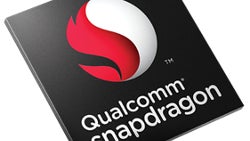Qualcomm fined $850 million in South Korea for violating antitrust laws

It looks like Qualcomm is slowly becoming one of the most fined company in the smartphone business. In just two years, the US-based company was forced to pay almost $200 million in fines.
The last fine Qualcomm was hit with dates from last year when the company had to pay $975 million in China after it was found guilty for not abiding to the country's antitrust regulatory laws.
Today, South Korea's Fair Trade Commission (KFTC) announced it has decided to fine Qualcomm a whopping $853 million for violating antitrust laws.
According to KFTC, some of Qualcomm's business practices are in violation of Korean competition law and the fine issued is meant to be a “corrective order relating to specific practices issue.”
Even though Qualcomm will appeal the amount of the fine and the method used to calculate it, the company must pay the money within 60 days of the issuance of the written order.
It's also worth noting that the royalties received by Qualcomm for sales of smartphones in South Korea accounted for less than 3% of total Qualcomm licensing revenue during the company's fiscal 2016.
It remains to be seen whether or not the ruling will limit to Qualcomm's earnings coming from royalties paid by South Korean manufacturers, or it will attempt to regulate intellectual property rights granted by other countries or activities outside of South Korea.
The last fine Qualcomm was hit with dates from last year when the company had to pay $975 million in China after it was found guilty for not abiding to the country's antitrust regulatory laws.
According to KFTC, some of Qualcomm's business practices are in violation of Korean competition law and the fine issued is meant to be a “corrective order relating to specific practices issue.”
Qualcomm strongly disagrees with the KFTC’s announced decision, which Qualcomm believes is inconsistent with the facts and the law, reflects a flawed process and represents a violation of due process rights owed American companies under the Korea-U.S. Free Trade Agreement (KORUS).
Even though Qualcomm will appeal the amount of the fine and the method used to calculate it, the company must pay the money within 60 days of the issuance of the written order.
It's also worth noting that the royalties received by Qualcomm for sales of smartphones in South Korea accounted for less than 3% of total Qualcomm licensing revenue during the company's fiscal 2016.
source: Qualcomm via AndroidCentral
Follow us on Google News













Things that are NOT allowed:
To help keep our community safe and free from spam, we apply temporary limits to newly created accounts: